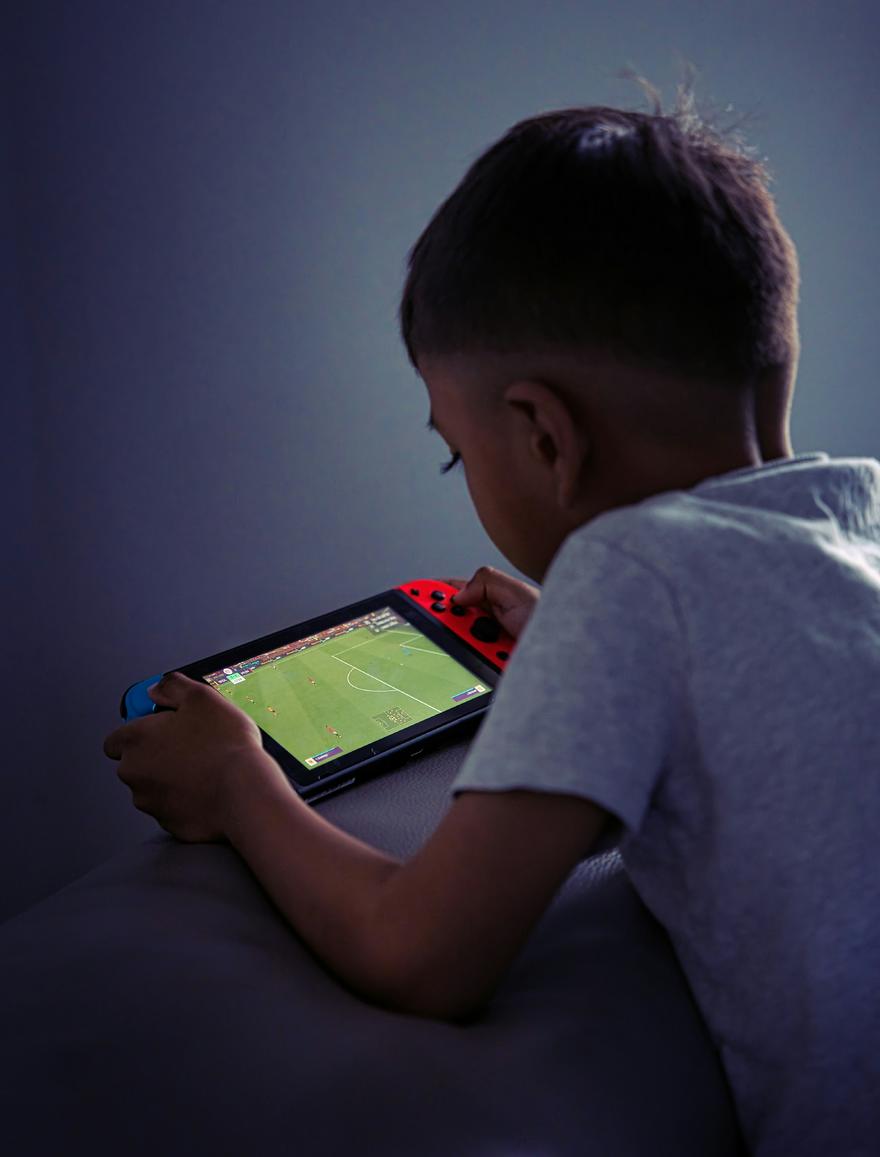Have an ADHD Child Addicted to Technology? Consistency is Key

Dwight Franklin, MSOM, AP
When working with families that come into my office, it is a common occurrence that overuse of technology by the child is the cause of a great deal of stress and turmoil within the household. This stress and turmoil from this technology addiction can often have far-reaching effects that go well beyond the confines of the family home. The turbulence that can result from an inability on the child's part to handle the vast stimulation of the online world can be tremendous. It can greatly impact a child' s educational endeavors as well as their motivation for life in general. As there is a never ending funnel of stimulus within the internet through gaming, streaming services, social media, etc...it often seems mundane for the child (or even many adults) to participate in the real world and become the best possible versions of themselves.
Parents are often very aware of this problem. They know that something truly needs to be done and often they get frustrated enough that they start the process of breaking the child's addiction through limitations on online use or even taking away online devices fully for a length of time. However, I find that having clear, concise limitations on online platforms and maintaining consequences when those limitations are not respected can be just as great of a stressor for the parents as the child's unhealthy relationship with technology itself.
I see it happen over and over again in my office. A child oversleeps and is late for school due to being online at all hours of the night before, a child argues about starting their homework as they are entranced in their favorite video game, or a child refuses to have any interaction with the outside world while mindlessly scrolling through social media. The parents are fed up and they take action.
"A week with no electronics!"
That is a common intervention thrown around by parents who have the absolute best of intentions. Unfortunately, and with all due respect to the parents that are doing their best, it way too often is less of a true intervention and more of an empty threat. I tend to hear that the child has the devices back in their hand within a day or two. Why is this? It is usually relatively simple. The child's protests to the intervention were found to be even harder for the parents to handle than the everyday, tough but manageable, dysfunction that came from the addiction itself. While it may be true that the child was moody, unfocused, and showed little zest for life with access to the online devices, now that they are without the devices they are even angrier, depressed, crying, and lashing out with comments that stir up feelings of guilt within the parents that can be hard to bear. It needs to be said that these big, irrational reactions to having a device taken away should probably be an indicator that the addiction to technology is severe and requires intervention.
If the parents withstand the big emotions then you may see the child promising to do better without a lot of evidence to back up these promises and newfound attitude. This makes the parent feel as if the child truly finally "gets it". And if they "get it" and are voicing that they are willing to change these negative habits what is the purpose of continuing with the consequences? Right? Possibly, but in my experience working with many, many families I do not find these problems so easily corrected in such a quick time frame.
So what happens? The child gets to go back to status quo and that status quo continues until once again the parents have had enough and the vicious cycle of removing the problematic devices, not being able to withstand the aftermath of that removal, and finally the concession that it may not be worth the struggle to stick with the intervention continues. However, this cycle does not just keep the problem at status quo. It often makes the problem vastly worse. Let's look at three unintentional consequences of this cycle that I have personally seen in clinical practice.
1. The child does not believe that consequences given are definitive. They believe all consequences to be negotiable and poor decisions on their part to be easily escapable. When we do not give our children clear, concise, and non-negotiable consequences to poor decision making we set them up for failure in the present and possibly for the future. At some point in time during their lives they may run across a consequence that is absolutely non-negotiable and the parents may only be able to do so much in intervening on their behalf. I often see parents take the blame and the brunt of their child's poor decision making over and over again believing themselves to be helping the child. A child is late once again to school due to staying up too late the night before watching Netflix, nothing that a phone call from mom begging for a second chance won't fix.
I watch too many teenagers not reaching the incredible potential that they are capable of and struggling in life way more than they need to be. This is at least partially due to not having to ever really take responsibility for their actions and the shock that comes when the outside world decides to come and collect. The most unfortunate part is that if parents were willing to embrace short-term discomfort for a more functional, happier future this scenario would likely not have to take place.
2. One parent is often ostracized as the "bad guy". It is very common in a two parent household that one parent is looking to stick with whatever intervention was agreed upon while another parent is feeling the guilt of making their child experience this current discomfort. Often this leads to one parent actively working with the child against the other parent's wishes. It is of course not done with any ill will. It is simply that the guilt can be so strong that the parent is now thinking equally irrationally as the child with the online addiction. The parent that wishes for the agreed upon intervention to remain can often find themselves on the outside looking in and eventually in a position where they hesitate to participate in giving feedback on the child's behaviors. This is not an optimally functioning household.
3. A very real addiction continues. The most problematic of the three unintentional consequences. Online addiction happens with people of all ages. When we are using the internet for any of the purposes that we have listed throughout this article our brains have a temporary increase in dopamine. Dopamine is the neurotransmitter that helps us to focus and gives us motivation. You might think this to be a good thing, right? Not typically in this case. The body and brain are setup in a way in which they tend to react to a stronger stimulus than what has come before it. For example, if you severely sprain your ankle running outdoors and on the way to falling down you also got a splinter in your hand, you are probably not going to feel the pain from the splinter. Your brain will mostly be registering the more intense pain of the sprained ankle. A person's brain is very similar with the overuse of technology. You know this already. When a child is watching an exciting show online or playing an online game, you as the parent have to literally scream to get the child's attention. Sure, you tried the easy way by calling their name calmly but you received no reaction. The child's brain did not register what you had said. This becomes a bigger issue when the only thing a child can focus on or get motivated for is through an online device. It's incredibly tough to get homework done, meet new friends, or get much needed exercise when you are glued to a device.
I am very aware that online devices are not going anywhere and have great positive uses. You literally have the majority of the world's knowledge in the palm of your hand at any given time. That is quite frankly miraculous. I know that most of what kids do for school is also online and will only go further in that direction in the future. I also want you to know that I love certain streaming shows and grew up playing video games. And guess what I still occasionally game when I have time and it doesn't take away from other areas of my life. But I know that I have to keep an eye on all of these activities and keep them as a minor hobby and not a way of life. We are simply looking at achieving a healthier relationship with the online world and the first step in helping our children do this is by teaching them discipline and self-control.
(This article is not intended to diagnose, treat, prevent, or cure any illness. It is for informational purposes only. Only work with qualified health professionals in meeting your health needs.)

0 comments
Leave a comment
Please log in or register to post a comment